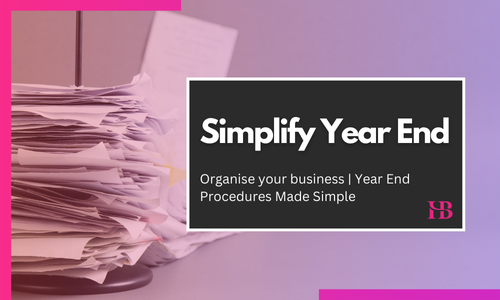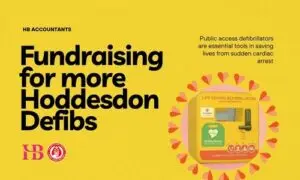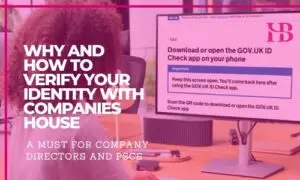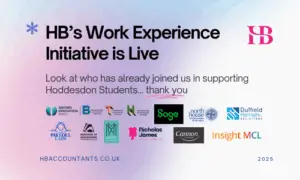Getting ready for the end of your tax year might appear daunting but don’t dread it, consider embracing it. This is an excellent opportunity to organise your business. This is easier when you have a great relationship with your accountant and you keep good records.

As the end of the financial or tax year approaches, a frequent question we hear is “What do I need to give you?”
If you are a sole trader or a limited company, the records your accountant needs are similar. Your accountant needs detail of your business income and expenses to calculate your business profit. Below is a simplified checklist along with the usual documents needed:
- Bank statements for your business accounts
- Stock valuation
- Purchase invoices and receipts
- Records of sales/rental/investment income
- Payroll documents
- Credit card statements
- Financial agreements
- Loan statements
- Petty cash records
- Any other expenses not directly paid by the business
- Assets and equipment acquired during the year
- Assets sold, scrapped, or disposed of during the year
- Copies of VAT returns submitted throughout the year
- Mileage logs
- Dividends disbursed to shareholders or drawings taken
Here are five common issues that waste time and money when preparing clients’ financial statements and tax returns
- Poor communication
- Missing information
- Inconsistent and incorrect coding
- Bank reconciliation issues
- Processing errors with invoicing
Get Your Affairs in Order
Having current and precise information is a game changer. Some business owners choose to buy bookkeeping software or employ a professional bookkeeper. If you’re a small or new business, you may choose to use a spreadsheet.
Bookkeeping for SMEs
Managing basic bookkeeping on a spreadsheet involves inputting and categorising transactions. When a transaction occurs, follow this process to record and categorise it:
- Get a record of the transaction: Every time a transaction takes place, you’ll need a record to refer to for the relevant information that you’ll record within your Excel bookkeeping system. This record may be a credit or bank statement, the information in your PayPal account, or a receipt from a cash payment.
- Enter the date: Based on the record you have, you’ll enter the date the transaction was recorded under the appropriate column.
- Describe and categorise the transaction: Next, you’ll enter the relevant account under the appropriate column. You’ll fill in what the transaction was, how much it was, and then the category.
What Will Your Accountant Check?
- Your bank account – is your account fully reconciled and does it match your actual bank statement balance? If not, the error needs to be located and corrected. It’s crucial to have an accurate picture of what’s going in and out of your bank account, otherwise you could spend money you don’t have. Worst case scenario, you could get fined by the Tax Office for inadequate record-keeping.
- Invoices, bills and payments received – have all those that fall within the current tax year been entered, approved and banked? Do you have any outstanding invoices that need to be collected or bills that need to be paid?
- Expenses claims – have you claimed every legitimate business expense you can? They will track down those receipts and take into account non-cash items, such as business mileage and use of your own home. Every sum you claim in expenses is a deduction from your profits, which in turn means less tax.
- Paperwork – they will ensure there is the hard evidence that will back up your return, such as bank and credit card statements, and supplier statements of accounts.
You can provide all the mentioned information digitally. Please be aware that the lists provided are not exhaustive, and your specific circumstances will determine the relevant information needed.
Simplified Year-End Procedures
It’s financially beneficial to keep track of your expenses because you can subtract them from your declared profit to HMRC, lowering your tax bill. Additionally, it aids in managing cash flow and enables you to make better-informed decisions regarding your spending.
After providing your accountant with the information required, it is now their turn to finalise your business’ year-end.
Basis Period Reform: Changes for Unincorporated Businesses
From 6 April 2024, there’s a new way of allocating business trading income for tax purposes called “basis period reform.” This affects sole traders and partnerships, excluding those with a year end on 31 March or 5 April.
Are Limited Companies affected by the Basis Period Reform?
Limited Companies are not affected. Initially, this change may increase tax liability, as the 2023/24 tax calculation will cover a longer period. However, provisions like overlap relief and spreading additional profits over five years can mitigate this. Still, expect higher tax bills for the next few years. Consider changing your accounting year end to 31 March to minimize the impact, though it might not be suitable for all businesses.
The effects of this reform vary depending on your situation. At HB Accountants, we can assist in assessing its impact on cash flow, potential higher tax bands, and help you with strategies for minimising the damage.
Year end checklist pre 5 April 2025
- Maximise use of tax rates, tax bands and allowances
- Assess allowances available for all family members
- Review profit extraction strategy in family companies
- Plan for cash flow impact of basis period reform (unincorporated businesses)
- Take advantage of the 2024/25 ISA allowance
- Claim higher rate repayments under Gift Aid
- Review pension plans
- Update wills and estate planning as required
- Contact us ahead of 5 April 2025 for maximum tax efficiency for the new tax year (24/25)
The information contained above is for general guidance purposes only. Whilst every effort has been made to ensure the contents are accurate, please note that each individual has different circumstances and it is essential that you seek appropriate professional advice before you act on any of the information contained herein. HB Accountants can accept no liability for any error
Read Our Latest Blogs Below
- HB Accountants Leads Installation of Life-Saving Defibrillator in Rye House, Hoddesdon
 A potentially life-saving public access defibrillator has been installed in the Rye House area of Hoddesdon, made possible by local business HB Accountants, in partnership with local charity, Hearts for Herts, and a generous donation from Plumpton House landlord Clive Martin. HB Accountants’ fundraising had personal inspiration driving their mission.
A potentially life-saving public access defibrillator has been installed in the Rye House area of Hoddesdon, made possible by local business HB Accountants, in partnership with local charity, Hearts for Herts, and a generous donation from Plumpton House landlord Clive Martin. HB Accountants’ fundraising had personal inspiration driving their mission. - Cyberattacks – why FDs and CIOs need to collaborate
 The growing threat of cyberattacks remains for all UK businesses. It could result in Cyber Vandalism – such as the publication of a fake terror attack at UK stations thanks to an admin error that impacted National Rail, fake voices and images – known as a deepfake attack – scammed the British design firm Arup … Continue reading
The growing threat of cyberattacks remains for all UK businesses. It could result in Cyber Vandalism – such as the publication of a fake terror attack at UK stations thanks to an admin error that impacted National Rail, fake voices and images – known as a deepfake attack – scammed the British design firm Arup … Continue reading - Why and How to Verify Your Identity with Companies House – A Must for Company Directors and PSCs
 From 2024 onwards, Companies House has introduced important changes as part of the Economic Crime and Corporate Transparency Act. One of the biggest changes is the requirement for certain individuals to verify their identity to obtain a VIN number. This key step is to improve corporate transparency and tackle economic crime in the UK.
From 2024 onwards, Companies House has introduced important changes as part of the Economic Crime and Corporate Transparency Act. One of the biggest changes is the requirement for certain individuals to verify their identity to obtain a VIN number. This key step is to improve corporate transparency and tackle economic crime in the UK. - HB Accountants Launches Inspiring Work Experience Initiative Across Borough of Broxbourne and We’re Just Getting Started!
 We’re thrilled to announce that the HB Accountants Work Experience Programme has officially launched giving local students the opportunity to rotate through five different businesses over their week experiencing the workplace.
We’re thrilled to announce that the HB Accountants Work Experience Programme has officially launched giving local students the opportunity to rotate through five different businesses over their week experiencing the workplace. - Hello from Livingstone! Talking to Gertrude
 Sponsoring a university student in Zambia via the charity African Impact Foundation, has been an eye-opening experience for the HB team. Gertrude is studying for her Bachelor of Business Administration in Accounting and Finance at Chalimbana University in Zambia. She took time away from her studies to join a conference call with us and the … Continue reading
Sponsoring a university student in Zambia via the charity African Impact Foundation, has been an eye-opening experience for the HB team. Gertrude is studying for her Bachelor of Business Administration in Accounting and Finance at Chalimbana University in Zambia. She took time away from her studies to join a conference call with us and the … Continue reading

